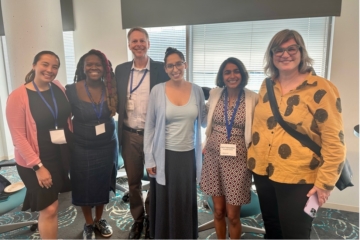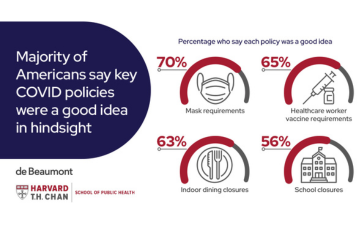
Sameer Vohra, Founding Chair, Department of Population Science and Policy, Southern Illinois University School of Medicine
In 2015, as Southern Illinois University School of Medicine (SIU SOM) was finalizing plans to create a new, innovative department focused on rural population health, I took a bit of a road trip. I needed a deeper understanding of Illinois’ rural communities, and I wanted to learn more about their resources and challenges. I traveled throughout our mostly rural, 66-county service region of central and southern Illinois to visit with doctors, social workers, public health administrators, teachers, and community members. Resident after resident was eager to share the issues they faced: cardiovascular disease. Obesity. Mental illness. Poor development of children. Opioids. Poverty. The challenges were great, and I knew making an improvement would be hard.
But hope was persistent. Take Junction, Illinois: Population 129. Junction is home to the Egyptian Health Department, which serves White, Gallatin, and Saline counties in southeastern Illinois. Among the state’s 102 counties, these three counties are ranked 89th, 90th, and 100th in health outcomes. It can be easy to become discouraged with those rankings, but I was struck by the residents’ relentless push to improve health. The people I encountered were thrilled that we had come to listen and learn, and they gladly offered any available resource for the betterment of their community.
From county to county, I witnessed a similar situation: residents working together and making sacrifices to improve each other’s health. I finished that trip with one simple, unifying emotion: motivation to do more. Fortunately, SIU School of Medicine felt compelled to serve these residents better.
In 2016, the SIU School of Medicine created the Office of Population Science and Policy, and by 2018 we had created enough momentum to gain department status. The Department of Population Science and Policy (PSP) became the first new department in the School of Medicine in approximately 30 years.
I finished that trip with one simple, unifying emotion: motivation to do more.
The Department of Population Science and Policy was launched to better understand the health, development and wellness of residents in central and southern Illinois. PSP works with communities to help create the right infrastructure and processes that lead to health outcome improvement. Organized around divisions of Epidemiology and Biostatistics, Human and Community Development, and Health System Science, the department performs traditional academic research, creates programs and/or interventions aimed at health outcome improvement, and recommends policies to institutionalize sustainable change. Current projects focus on addressing rural health disparities in children’s development, toxic stress, opioids/substance use disorders, sexually transmitted infections, and cancer rates.
The communities in which PSP works are often rich in innovation but short on funds – and rural Illinois faces the compounding factor of being located in a state that is often financially and politically driven by the influence of a single urban metropolis. It is our challenge to harness the innovation, connect the stakeholders, and identify potential funding sources within and outside those communities. PSP designs innovative interventions, so it seems appropriate that our funding methods are equally creative. By engaging with multiple interdisciplinary stakeholders and non-traditional philanthropic partners, we are able to pull together somewhat uncommon funding methods to complement our more traditional research grants. Funders have included public health agencies, statewide associations, school districts, corporations, hospitals, private foundation, and local, state, and federal agencies, to name a few. By refining our proposals and connecting potential funders’ priorities to the social determinants of health, we are able to successfully connect public health and philanthropic missions.
Raising money for something new and different is hard. We are selling the vision of improved health – explaining the challenges and describing the innovation we’ve seen in the communities we serve. Throughout our journey, we have been fortunate to find partners who have the same affinity for rural areas and share our goals.
We are incredibly thankful for the funding organizations who see the value in our work and are willing to be as creative with their dollars as we are with our solutions to improve health. The Department of Population Science and Policy is disrupting how health is both considered and funded. We are looking forward to using this innovative funding strategy to secure resources to build large-scale change across rural Illinois and rural America.
Sameer Vohra is a member of the first cohort of 40 Under 40 in Public Health. This post was first published on the APHA Annual Meeting blog as part of the “Fresh Perspectives” series presented by the de Beaumont Foundation.




